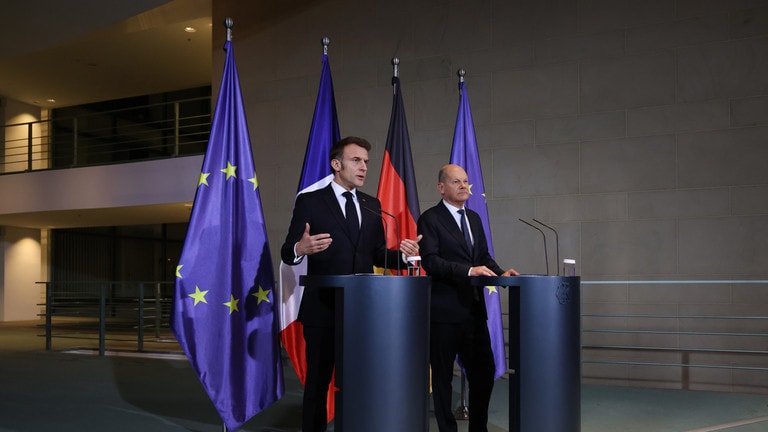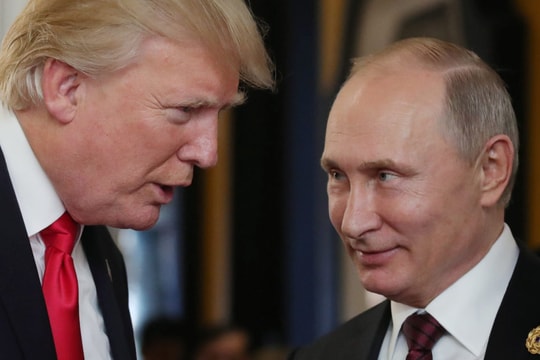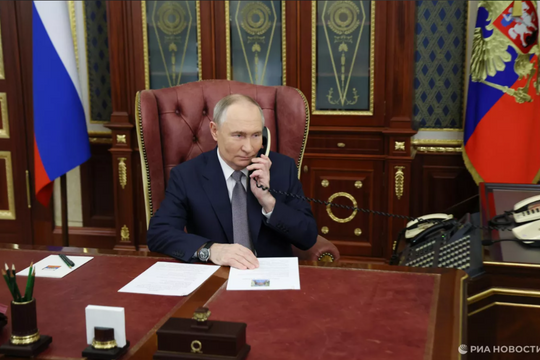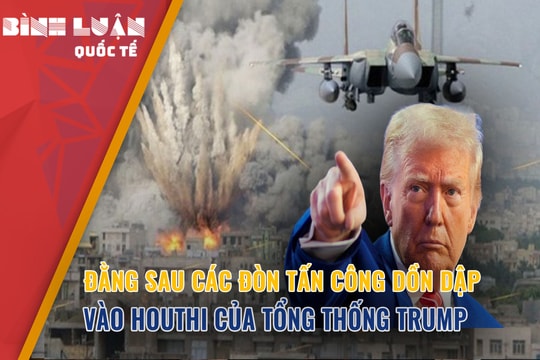How did EU countries react to the Trump-Putin phone call?
US President Donald Trump and Russian President Vladimir Putin discussed the possibility of a ceasefire in Ukraine in a phone call on March 18, prompting EU countries to react with cautious optimism.

According to the Kremlin, President Putin has ordered the military to halt attacks on Ukraine's energy infrastructure for 30 days. In addition, Moscow and Kiev will also conduct a prisoner exchange on March 19.
The leaders of France and Germany welcomed the talks, but stressed the need for continued support for Ukraine. “The next step must be a full ceasefire in Ukraine as soon as possible. Of course, it is clear that we both agree on this,” German Chancellor Olaf Scholz said at a press conference in Berlin with French President Emmanuel Macron.
According to Reuters, Mr. Olaf also affirmed that Germany will continue to support Ukraine and "not let Kiev down."
French President Emmanuel Macron called Russia’s agreement to halt attacks on energy infrastructure “a good start” in the peace process. “We will continue to support the Ukrainian army in its fight against Russia,” the French leader said.
Hungarian Foreign Minister Peter Szijjarto described the Trump-Putin phone call as “great news” for Europe. “Today, the US President and the Russian President took a big step towards peace, and we hope Brussels will not stand in the way of reaching this agreement,” he wrote on Facebook. He also expressed hope that both sides would respect the halt in attacks on energy infrastructure.
Some EU officials have previously worried that Trump could strike a deal that is unfavorable to Ukraine, with EU High Representative Kaja Kallas warning that “Russia cannot be truly trusted.”
Both Trump and Putin described the talks as useful and constructive in ending the conflict in Ukraine.
During the 2.5-hour phone call, President Putin warned President Trump that Ukraine had “repeatedly sabotaged and violated previous agreements.” He also stressed that Moscow had concerns about the US proposal for a comprehensive 30-day ceasefire, especially the issue of monitoring the implementation of the agreement.







